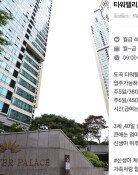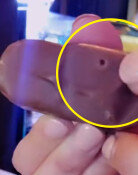150th Anniversary of US-Japan Peace Treaty
150th Anniversary of US-Japan Peace Treaty
Posted March. 30, 2004 22:19,
--Light and shadow of the highest U.S.-Japan relationship
The Americans and Japanese have the same foods, listen to the same music, and wear the same clothes. We have become members of the same team.
Howard Backer, the U.S. ambassador to Japan said that the relationship between the two countries has never been better, in his letter contributed to the Koizumi cabinets internet homepage.
The trade conflicts, which strained the relationship between the two countries in 1980s, have been alleviated as the Japanese economy plunged down.
The United States is eager to exalt Japan, expecting economic supports from Japan for its Iraq and Afghanistan operations. Bush has displayed many subservient gestures by inviting Koizumi, the Japanese premier, to his private ranch in May 2003, and to an intelligence briefing of the CIA.
Japan has also consented to support the policies of the US from the very beginning of the Iraqi War without caring about the glare from other countries.
But, the higher levels of Japanese leadership have been concerned that the U.S. continues to make requests without listening attentively to the voices of Japan. This tendency became apparent when the U.S. interfered with Japanese companies movements in Iranian oil field development that were driven forward in the respect of national energy security.
Although the two summits have shown individual friendship, the confidence rate of the both countries toward each other has decreased. In a cooperative survey by U.S.-based Gallop and Japans Yomiuri Shimbun, the average US citizen answered 71 percent and Japanese 41 percent approval at the question, I trust the opposite country, showing a 7 percent and 8 percent decrease respectively from that of the previous year.
--Making Japan Americas military proxy in East Asia
As Japan and China kicked up discords over the territorial problem of the Senkaku Islands when the Chinese landed on the island, a high-level official of the State Department of the US has stated that the peace treaty can be applied to the Senkaku Islands, on March 24. It has been officially assured that the US will take sides with Japan if a conflict occurs over the islands.
The most outstanding field of cooperation between the two countries is military. Experts assess that the U.S. hopes that the void of U.S. forces in East Asia will be filled by the forces of Japan, one of the five strongest military powers in the world and a firm ally.
A clear example of this is the U.S.s suggestion to move the U.S. armys First Corps headquarters, which is currently stationed in Washington, to Japan. The joint development of the Missile Defense (MD) system with Japan and cooperative military exercises with Japanese self-defense forces can also be interpreted as the U.S.s intention to utilize Japan as a means to restrain China.
Japanese rightists, welcoming the intentions of the U.S., regard this as a good chance to rearm Japan.
The former Japanese premier, Miyazawa Kiichi, stated, We should prepare for the time when the Japan-China relationship becomes as important as the current Japan-US relationship, showing precaution to Japans wholehearted devotion to the U.S., but it seems to be wanting in the ability to prevent the tendency.
The United States, which wants to have Japan as its proxy in East Asia, and Japan, which is eager to assume the duty, face a totally different phase in their 150-year long history of alliance.
--Celebration for their first meeting which gave birth to abundance
As of 2002, the individual Gross Net Profit for the US is $35,060 and for Japan, $33,550, ranking sixth and seventh respectively in the world. The two countries gross domestic profit (GDP) occupies 45 percent of the whole worlds GDP. Japans amount of foreign currency possession reaches 780 billion dollars, taking possession of the worlds top spot.
The two countries governments celebrate their first meeting, which allows todays abundance, in a large scale.
At the U.S.s commemoration ceremony, which is to be held in Washington on March 31, the U.S. will give Japan the copy of the U.S.-Japan Peace Treaty as a voucher for bearing the spirit of the treaty in mind again. Japans original copy of the treaty vanished in a big fire in the late Makbu era.
At Japans commemoration ceremony, which is to be held in Yokohama, the original place of the treaty agreement, Koizumi will emphasize the importance of good relations between the two countries, and Bush will congratulate the ceremony with a videotaped message.
Won-Jae Park parkwj@donga.com
Headline News
- Med professors announce intention to leave hospitals starting Thursday
- Bridge honoring Sgt. Moon Jae-sik unveiled in Pennsylvania
- Chief of Staff Chung tells presidential secretaries to stay away from politics
- US FTC bans noncompete agreements
- N. Korea launches cyberattacks on S. Korea's defense companies







